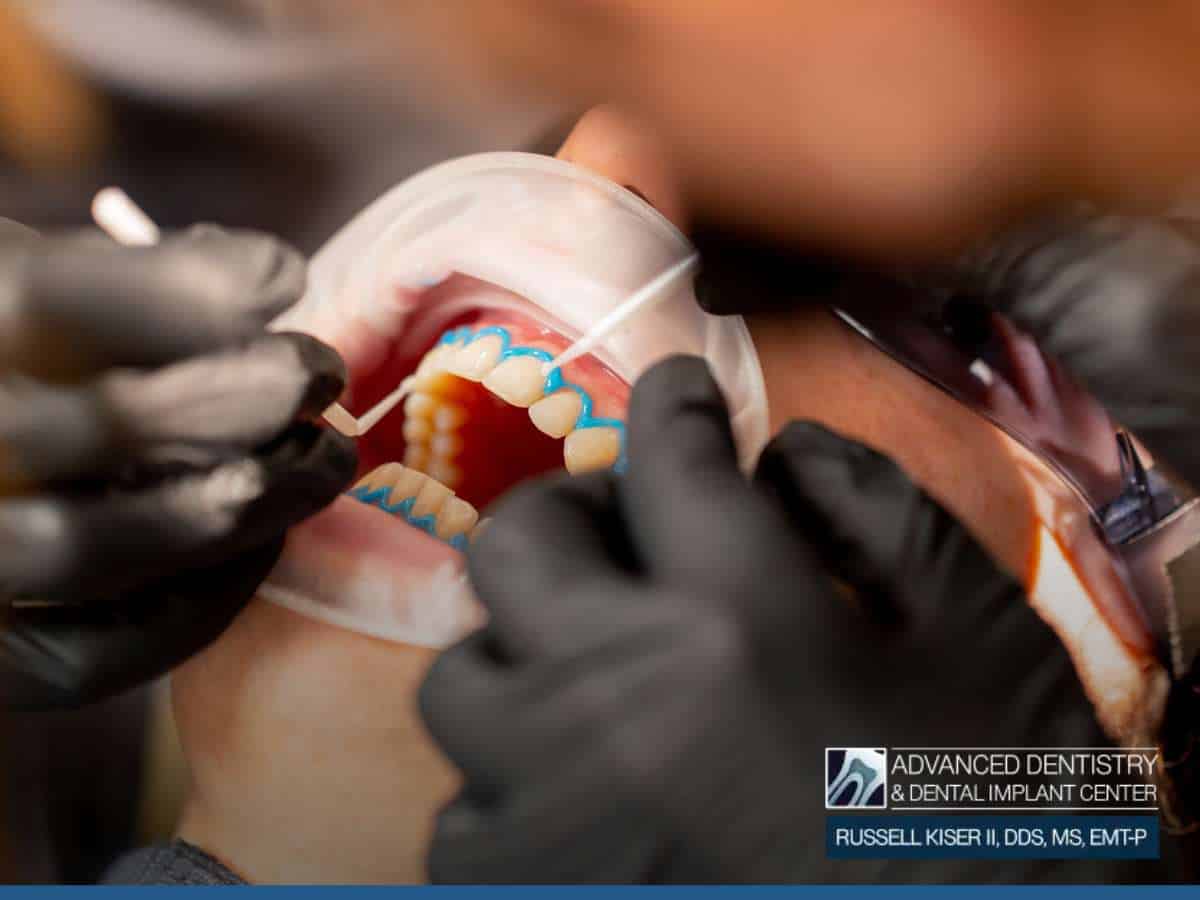Managing Gum Health With Diabetes For Optimal Oral Health
Did you know that your blood sugar levels could be silently affecting your smile? Diabetes doesn’t just impact your heart, kidneys, or eyes. It can also take a serious toll on your gums.
In fact, recent studies have proven that people with diabetes are at a significantly higher risk of developing gum disease. This connection isn’t just a coincidence; it’s rooted in how the body responds to high blood sugar and inflammation. Understanding this link is crucial not just for managing diabetes, but for protecting your oral health as well.
Understanding Diabetes & Its Impact On Your Body & Oral Health
Diabetes is a chronic condition that affects how the body processes glucose (sugar), which is why it’s characterized by high blood sugar (glucose) levels. Having high blood sugar usually means your body either isn’t producing enough insulin or isn’t using insulin effectively, and sometimes it’s a combination of both. Insulin is a crucial hormone because it produces energy.
There are two main types:
- Type 1 Diabetes is an autoimmune condition where the immune system mistakenly attacks the insulin-producing cells in the pancreas. As a result, the body produces little to no insulin.
- Type 2 Diabetes occurs when the body becomes resistant to insulin or doesn’t produce enough of it. It’s often linked to genetics, obesity, and lifestyle factors.
In both types, prolonged high blood sugar levels can damage blood vessels and nerves over time. This affects many systems in the body, including the immune system and the body’s ability to heal. Poor circulation and a weakened immune response make it harder to fight infections, especially in areas like the gums, which are vulnerable to inflammation and bacteria buildup.
What Is Gum Disease? Symptoms, Causes & Prevention Tips
Periodontal disease, commonly referred to as gum disease, includes a range of conditions. These conditions are characterized by inflammation and infection affecting the tissues that support teeth. This can vary from mild gingivitis to severe periodontitis, potentially resulting in bone deterioration and tooth loss.
It’s a common disease, but also quite preventable. The cause is normally poor oral hygiene or habits, such as bad brushing and smoking.
Symptoms include swollen, red, and tender gums, but you can also feel mild discomfort or sensitivity in the affected area.
The best way to treat gum disease is by visiting a periodontist in Mansfield, OH as they’re the best professionals to provide efficient treatments.
The Two-Way Relationship Between Diabetes & Gum Disease
Diabetes impacts oral health by altering saliva, the fluid that keeps your mouth wet. Saliva helps prevent cavities by eliminating food particles, inhibiting bacterial growth, and neutralizing acids. Additionally, it contains minerals that strengthen oral tissues and combat tooth decay.
Diabetes and some medicines used to treat diabetes can cause the salivary glands in your mouth to make less saliva. If your mouth isn’t making enough saliva, you’re more likely to get cavities, gum issues, and other dental problems.
Diabetes can also increase the amount of glucose in your saliva. That’s because Diabetes occurs when blood glucose levels are high. This excess glucose serves as a food source for harmful bacteria, which then mix with food particles to produce plaque, a sticky film responsible for tooth decay. If plaque is not removed, it can harden into tartar near the gum line, significantly raising the risk of gum disease.
Recent studies have shown that periodontal disease can complicate blood sugar control, worsening diabetes. In other words, this interaction not only increases the risk for further diabetic complications but also predisposes people to more severe and quicker progression of periodontal disease.
Warning Signs Of Gum Disease Everyone With Diabetes Should Watch For
Gum disease often starts quietly, but early detection can make a big difference, especially if you’re already dealing with diabetes. Be on the lookout for the following symptoms:
- Red, swollen, or tender gums: Inflammation is one of the first signs that your gums are under stress.
- Bleeding while brushing or flossing: This isn’t normal and may indicate the early stages of gum disease (gingivitis).
- Persistent bad breath or a bad taste in the mouth: Caused by bacterial buildup that isn’t going away with regular teeth cleaning.
- Receding gums or teeth appearing longer: Gum tissue pulling back can signal advanced gum disease.
- Loose or shifting teeth: This can happen when the bone and tissue supporting your teeth begin to break down.
- Changes in bite or dentures: Subtle shifts in how your teeth come together may reflect underlying gum or bone damage.
When To Schedule Your Next Visit for a Proactive Dental Care
If you’re managing diabetes and notice any changes in your gums (such as bleeding, swelling, or persistent bad breath), don’t wait. Schedule a dental visit at the first sign of trouble. Even if symptoms aren’t obvious, routine checkups every six months (or more frequently if advised) are key to catching problems early.
Take charge of your oral health today. Schedule your next visit with Dr Kiser, a trusted dentist in Mansfield, OH, at Advanced Dentistry, where compassionate, professional care supports both your dental and overall health. Your gums and future self will thank you!
Advanced Dentistry & Dental Implant Center
1221 S Trimble Rd Suite A1,
Mansfield, OH 44907
Tel: (419) 756-2880
Email: [email protected]







